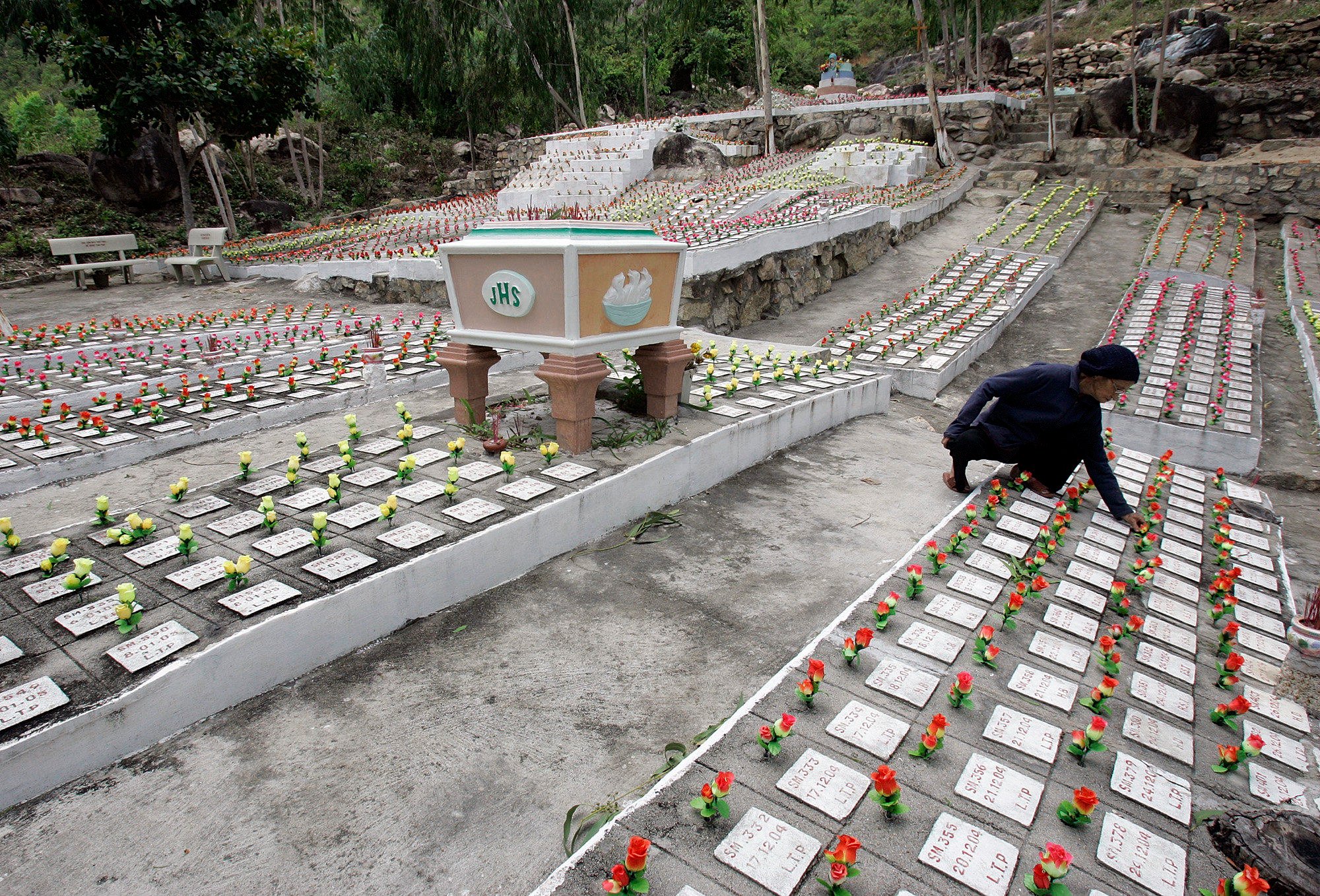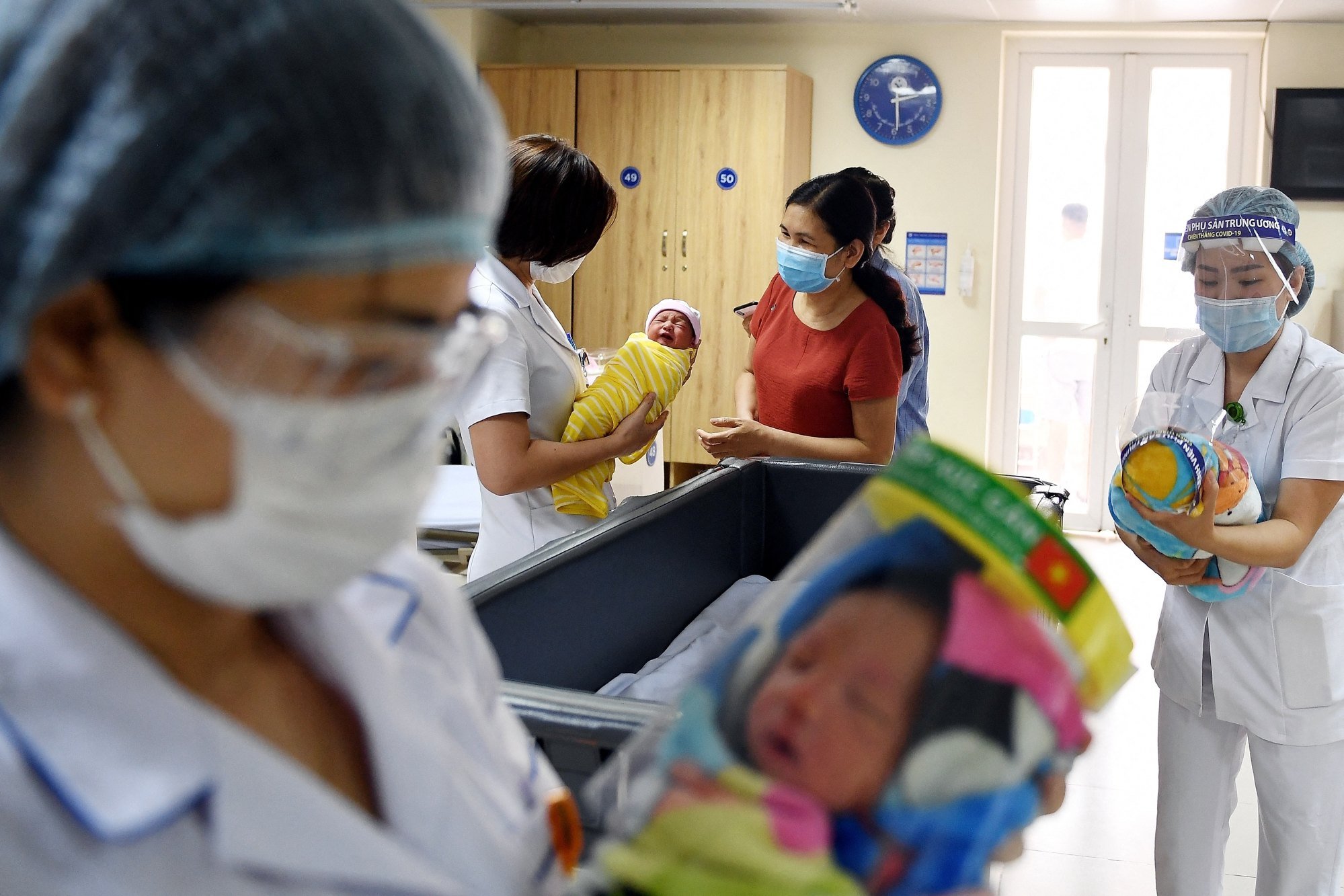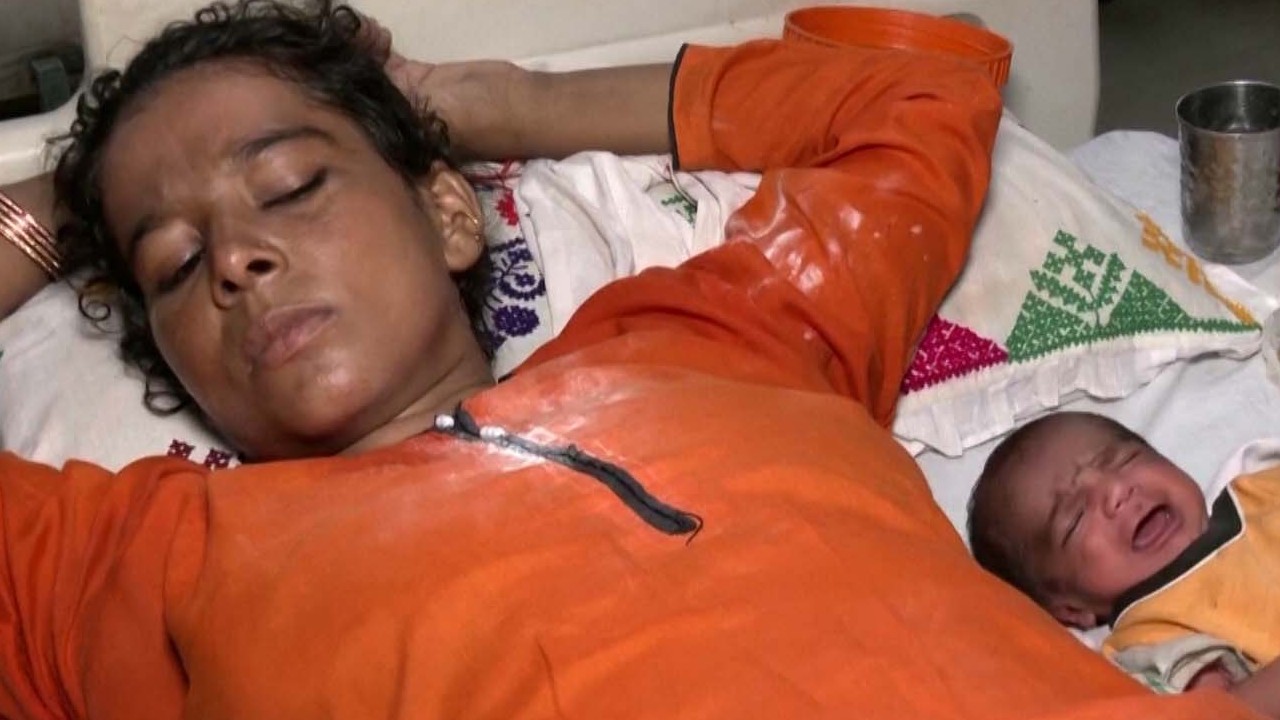According to Vietnamese tradition, the dead should be buried for at least three years, after which their bones are exhumed and placed in a small clay pot. These small pots are also used to bury children who die prematurely.
All the graves in the cemetery are for mass burials. Some contain up to 10,000 fetuses.

The size of the fetus dictates how many can be buried at once. One particular grave in the centre of the cemetery contains as many as 30,000.
“Every day, I receive about 15-20 fetuses – some delivered to the graveyard by volunteer students, some collected by my husband from nearby hospitals and clinics,” Nguyen Thi Nhiem, 64, who has buried fetuses here for 16 years after converting her land into a cemetery, said as she prepared the ground for burials.
Will US Roe v Wade saga affect Asia’s ‘progressive’ abortion laws?
Will US Roe v Wade saga affect Asia’s ‘progressive’ abortion laws?
Vietnamese culture is still influenced by Confucianism and couples still tend to hope for sons, who are considered better at managing family wealth, caring for ageing parents and performing rituals to honour ancestors.
“Despite gender-selective abortion being illegal in Vietnam, many parents are finding ways to make sure they have boys, who are preferred culturally,” Dr Khuat Thu Hong, director of the Hanoi-based Institute for Social Development Studies, said. “In Vietnam, the reality is that people still have to rely on their sons so that when they get old, they will have someone to take care of them.”
According to Vietnam’s General Department of Population, it is estimated that Vietnam will have 1.5 million more males than females by 2034, and 4.3 million extra by 2050 if the level of sex imbalance at birth remains as high as it is now. Data from the General Statistics Office, released in 2022, puts the sex ratio at birth at 112.1 boys per 100 girls. In 2006, the ratio was 109 boys for every 100 girls.
“Vietnam will face the problems that China has faced because sons will have trouble finding wives,” said Hong. “Vietnam will face more social problems, such as prostitution and trafficking of women.”

Vietnam has the second-highest abortion rate in the world, says the World Population Review, quoting the United Nations Population Fund (UNFPA). According to UNFPA, Vietnam reports about 300,000 abortion cases each year, though local statistics show the number is much higher.
Between 1.2 million-1.6 million abortions are performed each year, Dang Cong San newspaper, the mouthpiece of the Communist Party of Vietnam reported, quoting the Vietnam Family Planning Association (VINAFPA).
Vietnam’s Ministry of Health has pointed to poor sex education and a lack of access to contraception as among the reasons for high abortion rates in certain areas.
“Young people today are increasingly having more open thoughts about love and sex. They believe that love goes hand in hand with sex, which is proof of love, and are willing to have sex and accept abortion in cases of unintended pregnancy,” said Hong.
Research on student behaviour conducted over a six-year period by the Ministry of Health and the World Health Organization shows the number of students having sex before the age of 14 has doubled from 1.45 per cent in 2013 to 3.51 per cent in 2019.
“At our reproductive healthcare facility, some married women say raising and taking care of children today is very expensive, leading people to prefer to have fewer children,” said Dr. Nguyen Thi Yen, who works for a reproductive healthcare centre in Hanoi. “So some couples, in cases of unintended pregnancy, are willing to accept abortion.”
VINAFPA says the fertility rates in Vietnam have decreased by nearly half from a total fertility rate of 3.8 children per woman in 1989 to 2.1 children per woman by 2021.
“Many women are forced to get pregnant multiple times to give birth to a boy. Others have to have multiple abortions to achieve that goal,” said Dr Hong. “Abortion has been normalised, but it is not a normal experience for women. They are still the ones who have to suffer from the physical and mental health consequences.”
With the cultural preference for boys continuing and abortions rising, Doi Coc Cemetery is expanding every day.
“At first, this cemetery was just 600 square metres, but over time, the number of fetuses we collect has increased day by day, so I bought another 1,200 square metres to expand the cemetery. Currently, there is enough space to bury more fetuses, but sooner or later the cemetery will get overloaded,” Nhiem said.


